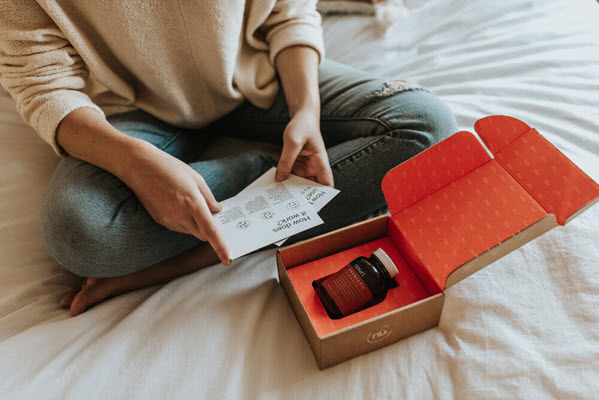Self-care has become a hot topic in mental health, helping professions and the media within the past several years. The intention initially was to help people begin to understand the importance of refueling and indulging in practices that help them to maintain balance in our very busy, deadline driven society. The subject of self-care started off as well-meaning but, in many ways, has become so overused that many do not feel that they have a concrete understanding of what self-care even means. In speaking with many students, they often feel that their programs “emphasize” self-care, but do not define the term or allow for it to be carried out with the demands of their schedules. Professionals often feel that regular and daily self-care becomes another burden on the to-do list. Worse, many feel that it has become an ineffective catch-all phrase thrown around by both recommenders and practitioners of regular self-care to mean overly indulgent behavior or an excuse to not engage in commitments. Not to mention, the monetizing of self-care which causes the feeling that self-care is only accessible if you can afford it. So, let’s deal with the issue of what self-care is.

Oxford defines self-care as “the practice of taking an active role in protecting one’s own well-being and happiness, particularly during periods of stress.”
This sounds great! We should all feel that we have the agency and the ability to engage in activities and spaces that are protective of and healthy for our well-being. So, article over; right? Well, there’s a problem. By definition self-care does not mean participating in any one or several activities. In fact, the definition does not imply having to do anything. But that’s not how we normally think of self-care. We have all seen lists of activities, or IG/Facebook posts of people doing things for #selfcare. We think of it as the things that we get to do for ourselves rather than the mindset: that ability to enact boundaries around our emotional, spiritual, mental and physical selves in order to maintain, heal or recharge.
Why is it that we miss the mental health necessity of self-care?
Truthfully, it is because mental health is not sexy—it’s not always a pretty process and having good mental hygiene is anything but quick and easy. Why don’t we delve in, then, to 3 ways that you can really begin a self-care routine from a space that will make activities that you do for the sake of self-preservation and loving on yourself really count.
-
GIVE YOURSELF PERMISSION
I’m a therapist—a specialist in mental health care. I spend about 40% of my time making sure that my clients have a strong understanding and incorporation of healthy and effective coping strategies and that they establish useful and regular self-care routines. It is the foundational piece of any deep heart work; it is my ethical responsibility to make sure that you feel safe with yourself and capable of taking care of yourself because I’m not there always.
I understand all that, and still personally struggle with giving myself the permission to take care of my own self. This is how I know, that you probably do too.
Any effective self-care has to begin with first allowing yourself to surrender to the fact that you, too, are in need of protection. You are worthy of protection. And, most importantly, you are capable of providing protection for yourself and your well-being. There may have been times in your life when this was not true, times where you felt especially vulnerable and powerless. It’s because of those times that you struggle to believe that you are now capable. You can and should provide yourself with all of the security that you may have not been afforded at other times in your life. And we are not only talking about physical security (though, that is a factor). We are talking about feeling secure in who you are, feeling comfortable and supported in your social and romantic spaces, and feeling self-aware and in control when interacting with family members or other people in our lives that we feel especially obligated to.
Giving yourself permission looks like scheduling time to focus on you, to relax, to reflect on circumstances that may have left you feeling broken. Giving yourself permission means allowing yourself to create the time, the space and to devote your energy to taking care of yourself.
Without that permission, you will fall into a trap of feeling guilty the entire time.
-
LETTING GO OF GUILT
When we finally give ourselves the permission to add ourselves to our busy to-do lists, we must be vigilant for the sneakiest thief of self-love: guilt. Feeling guilty for choosing yourself can manifest in multitasking (usually for someone else’s benefit) while engaging in self-care, limiting your time in an unreasonable fashion and generally not getting the true effect of feeling that you prioritized YOU.
We become bad at self-care because we become good at believing that we are necessary to the well-being and functioning of others. There is a certain ego benefit that we get when we convince ourselves that others need us, otherwise they will cease to be okay. Don’t get me wrong, we are relational people and we are all important to one another’s survival and especially each other’s ability to thrive. However, when we try to be everything to everyone but ourselves, we will inevitably burn out and start destructive fires in the same places we seek to enrich. It really is true, that we cannot pour from an empty cup. And we cannot fill our cup by accident or by proximity to others that we have poured into. We have to fill our cup through self-centered thoughts and actions—through truly believing that we have to be at the top of our own lists in order to achieve favorable outcomes.
When we first learn to let go of guilt, it is a conscious undertaking. You must continually be aware of your thoughts and how they are impacting the actions that you are taking while you are trying to spend carved out time for self-care. Are you feeling anxious? Check out Anxiety in the Air to learn more tips on how to cope with anxiety. Are you telling yourself that you’re a bad _____ (parent, partner, friend, etc.)? Are you watching the clock? Are you scheduling appointments for your children and doing the budget so that you can feel that “at least you did something productive”? When first beginning a self-care routine, you have to actively fight back the urge to make this time about someone else, to make yourself feel useful to others for just this period of time. That will be the beginning of relinquishing yourself to the power of knowing your limitations and setting boundaries around your wholistic well-being.
-
BRINGING INTENTIONALITY TO ANYTHING YOU DO IN THE NAME OF SELF-CARE
When we can address the mindset and heart-space that is necessary in self-care, then we can get past the barriers of time, affordability and access. We can truthfully engage in self-care in little and big ways anywhere as our own personal form of self-love.


